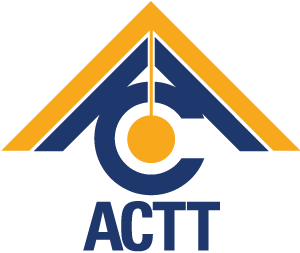About ACTT - Overview
Historical Overview of the Accreditation Council of Trinidad and Tobago (ACTT)
In early 1971, Cabinet Minute No. 1297 of December 9, 1971 directed the Attorney General and Minster for Legal Affairs to establish the National Commission on Accreditation. Subsequently, in 1979 the Committee on the Recognition of Degrees (CORD), originally called the Committee to Assess University Degrees, was established with the National Institute of Higher Education Research Science and Technology (NIHERST) as its Executive Secretariat. This committee was formed to report on the recognition in Trinidad and Tobago of qualifications offered by universities and other educational institutions in foreign countries. CORD’s decisions were of a technical nature and required access to technical advice and expertise. For many years CORD was the only agency that issued statements on the recognition of qualifications required by the public and private sectors when making decisions regarding recruitment and employment.
In 2001, the National Commission on Accreditation was established and a committee chaired by Dr. Anna Mahase was appointed to look at the provisional accreditation criteria, the development of mechanisms for accreditation of tertiary level institutions and to identify priority areas for training. In 2002, Cabinet appointed a team chaired by Dr. Ruby Alleyne, to establish The Accreditation Council of Trinidad and Tobago (ACTT).
ACTT was established in 2004 by Act No. 16 of 2004. Amendments to this Act followed in 2007 (Act No. 16 of 2007) and 2008 (Act No. 10 of 2008). In 2006, the Law Revision Commission assigned ACTT with a chapter number, Chapter 39:06.
ACTT’s key functions include conferment of institutional title, registration of higher education institutions, accreditation of institutions and programmes, recognition and equivalence assessments of foreign qualifications and awards and institutional development. These key functions provide the basis for ACTT to monitor and evaluate the quality of educational programmes, safeguard the interests of students and the public and provide an assurance of, and improvement in, the quality of education and training.




 Translate
Translate